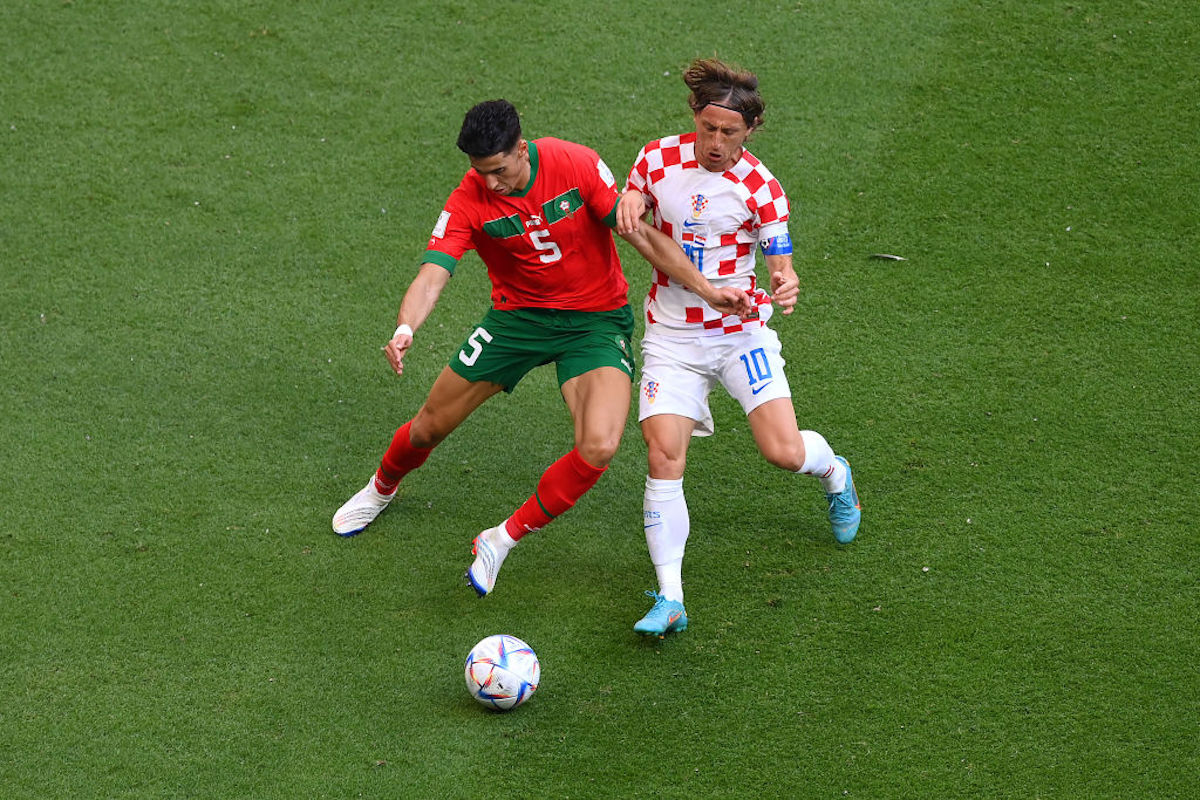🔁 Click here for the latest updates.
2 posts
18 minutes ago
Morocco and Croatia meet in the only World Cup game that neither team wants to play
By Matias Grez
Croatia and Morocco will meet again three weeks after playing the group stage of the World Cup.
Justin Setterfield/Getty Images Europe/Getty Images
Your team has just lost in the semifinal of a World Cup.
You are understandably heartbroken, thinking about what could have been.
After a month-long stay ended in devastating defeat, you can't wait to go home to see family and friends, but instead you have to stay and play in the third-place playoff.
To many, it seems like a largely pointless exercise.
Does it really matter who makes it to third or fourth?
However, there is some glory to be had.
If finishing third instead of fourth isn't incentive enough, the winner of the match will also get a bronze medal and a bit more cash for their efforts: $27 million instead of $25 million.
All but two World Cup tournaments in history, the first edition in 1930 and then again in 1950, have had third-place ties and could be seen as a good way to end your tournament on a high after a disappointing loss. .
The importance of the game for third place in each World Cup depends entirely on the teams that contest them.
Four years ago in Russia, England played like they didn't care about the game, while Uruguay were considerably more eager to try and win, though they lost to Germany in 2010 and Croatia in 1998.
This year, in the third-place match between Morocco and Croatia, there are two teams that are apparently itching to try for the bronze medal and an extra $2 million for their respective federations.
READ MORE
33 minutes ago
How has the economy of the countries that hosted World Cups changed?
By Uriel Blanco
The FIFA World Cup is "probably" the most popular sporting event in the world and, as soccer's governing body itself puts it, "the most prestigious tournament on the planet."
It is not surprising that, due to the massiveness of this event, many countries want to host the World Cup every four years that it takes place, as it can mean not only a great image promotion for the host nations, but also a major boost to the economy.
However, the latter is not the same for all hosts.
Although it is true that the World Cup projects the image of a country on the international stage (more than three million people have attended the matches of each cup since Germany 2006, according to FIFA), organizing it does not always mean economic growth and can even be in negative numbers.
According to the academic article "Comparing the Urban Impacts of the FIFA World Cup and Olympic Games From 2010 to 2016", published in 2018 by the peer-reviewed
Journal of Sport and Social Issues
, the host countries of mega-events such as the FIFA World Cup World spend an average of US$ 10,000 million to make material changes in cities, from the construction or remodeling of stadiums and roads, to the adoption of new technologies and the creation of airports or new means of transportation.
This figure, however, changes if we examine the World Cups on a case-by-case basis.
From Germany 2006 to Qatar 2022, investment has varied and not all countries have found it profitable to host this event.
READ MORE
World Cup 2022

